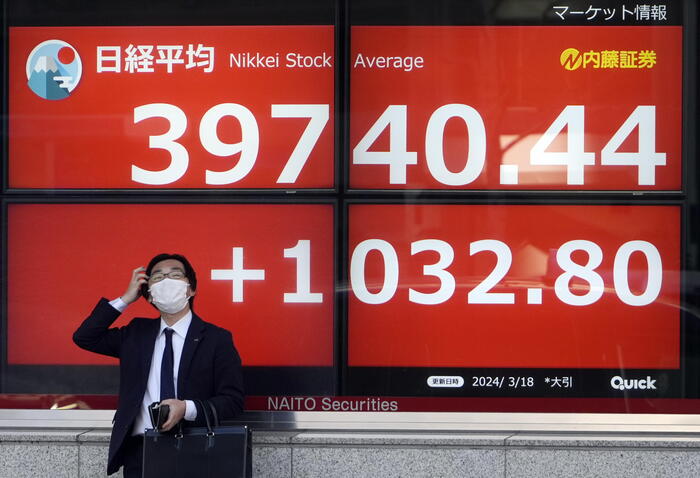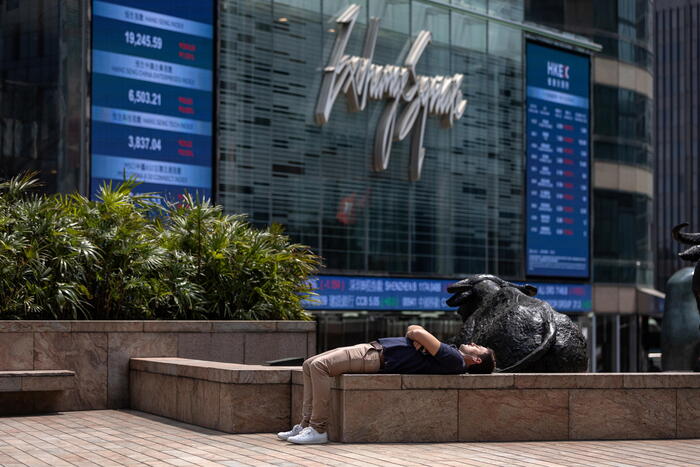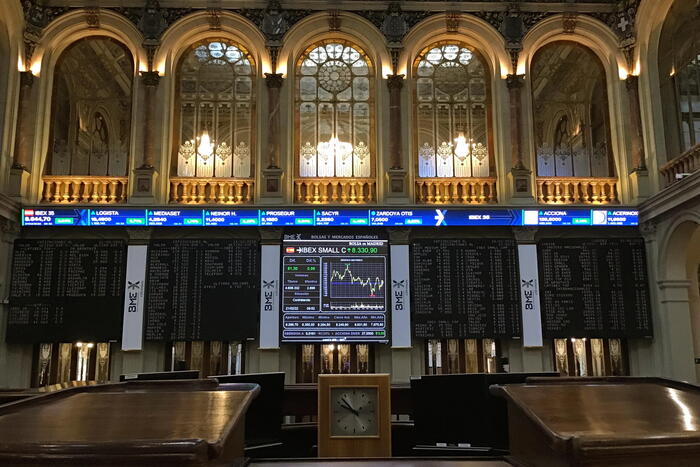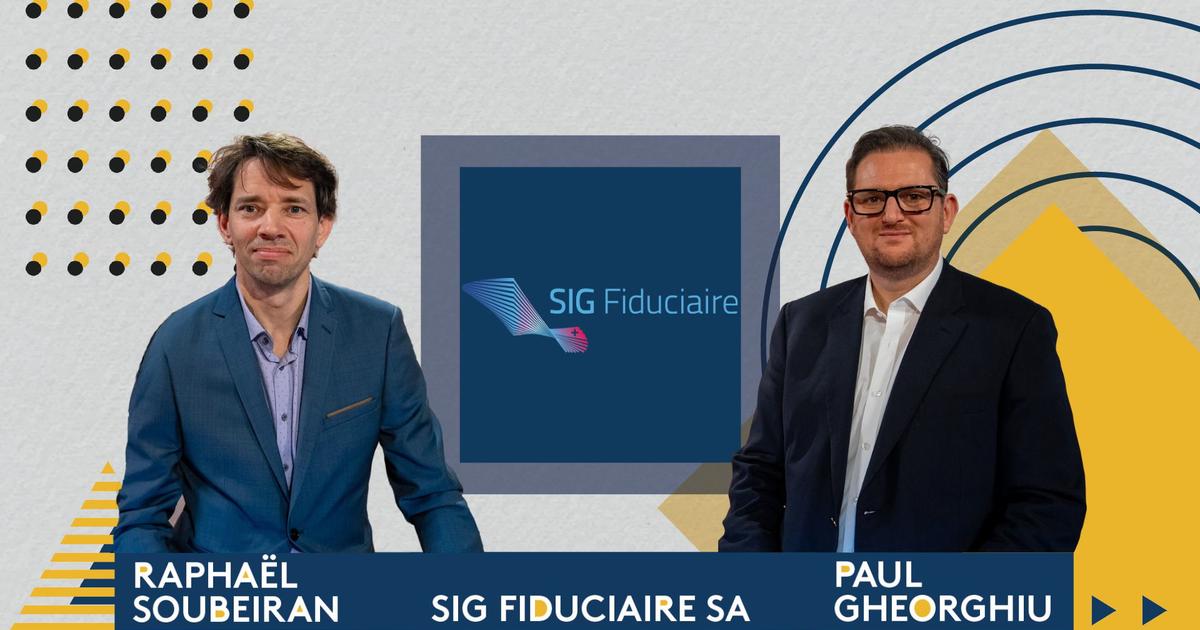The stock market harvest in 2021 has been quite good, with many of the main indices - except for the Ibex 35, which has once again disappointed - trading at levels close to their all-time highs.
Equity revaluations since January have on average exceeded 10%, with some markets reaching yields close to 20%.
The question that many investors are asking now coinciding with the change of year is whether 2022 will be just as good.
Financial advisers agree that in the coming year stocks will once again be the investment asset with the most potential, although more modest returns will have to be expected.
Santander Wealth Management & Insurance foresees returns on the Stock Market below 10%, but "clearly" higher than the returns that can be obtained in fixed income or having the money in liquidity (a very unattractive option with current inflation levels). "Investors will have to assimilate a gradual slowdown in monetary, credit and fiscal stimuli, while the private sector will have to take over from the economic boost", according to Víctor Matarranz, global head of this division of Santander that brings together the banking business private and asset management.
The economic cycle is advancing rapidly and lower growth is expected in the next 12 months, although above the data prior to the shock caused by the COVID in 2020. In addition, the markets are entering a phase of greater uncertainty, especially due to the unknown of the evolution of inflation. This situation will bring greater volatility in the stock markets, especially if central banks are forced to tighten the monetary cord even more as a result of an unwanted rise in prices. "The gradual withdrawal of monetary stimulus increases the risk of turbulence in the capital markets," acknowledges Ritu Vohora, analyst at the US fund manager T. Rowe Price. This view is shared by Allianz: “Investors should prepare their portfolios for episodes of volatility and persistent inflation,probably diversifying more broadly between asset classes, styles and regions ”.
Experts believe that the stock markets of developed countries will do better in 2022 than those of emerging countries (economies that are affected by a lower vaccination rate due to covid and that will have to deal with an adverse scenario such as the rise in interest rates in the US). Within developed markets, there is a good deal of agreement that Europe can do better than the US “We think Europe will be one of the areas with the greatest potential thanks to the boost from the stimulus plans and a more stable interest rate environment. All of this, together with the attractiveness of its dividend yield compared to bonds, will serve as support for adjusted but not demanding valuations ”, argues Francisco Sainz, investment director at Imantia.
Corporate profits are presented as the main catalyst for the Stock Exchanges next year. Of course, inflation will test the margins of many companies. The ability to pass the higher costs into the final price will be key to the sustainability of profits. BBVA AM, for example, places its forecast of corporate profits slightly above the consensus for 2022 and 2023, with annual average figures of 10% increase in both years for the aggregate indices of the United States and Europe, and somewhat higher in Spain. "The economic activity figures, with the permission of the variants of the covid, may surprise upwards in the coming quarters, because there is still retained demand and high savings rates," they forecast from the fund manager of this entity.
In sectoral terms, one of the industries with the most potential in the medium term, according to experts, is finance.
“Banks benefit from the greater economic dynamism and the normalization of interest rates.
In addition, the financial sector comes out of the crisis with a strengthened capital situation that will allow it to resume remuneration to shareholders (dividends and share buybacks).
All this with bank valuations that remain below their historical averages ", highlighted in Imantia.
Model portfolio
GVC Gaesco experts have drawn up a model portfolio with different values to face 2022. In it, Solaria, Iberdrola and Repsol stand out in the energy sector;
IAG and Meliá Hotels in tourism;
Sacyr, Buzzi and FCC under construction;
Cellnex in technology;
Inditex, Ebro and Unilever in consumption;
Catalana Occidente and Axa in insurance;
Stellantis and Gestamp in automotive;
Santander and Unicaja in banking, and Telefónica, Orante and TIM in the field of telecommunications.
The strategy reports also include as a recommendation to bet on long-term trends such as the energy transition and the aging of the population.
"Thematic investment offers the possibility of diversifying the portfolios, harmonizing them at the same time with important social and demographic changes in the long term", they highlight in Allianz.
Another recommended strategy for investors with financial capacity and resistance to prolonged periods of low liquidity are unlisted markets. “The flexibility of the managers of private equity and venture capital portfolios allows them to explore multiple opportunities in the market environment and economies in transition that we anticipate for the next few years. The lack of return on listed assets can drive investment in assets other than traditional ones, ”Matarranz emphasizes.
The prospects for public debt are not very promising.
If inflation continues to rise, markets will begin to discount increases in long-term interest rates, with the US 10-year bond being able to approach the 2% zone (now it is around 1.44%) while the German bond for the same term could enter positive territory (currently its yield is -0.34%).
When the profitability of fixed income rises there is a fall in the price of the bond.
"Therefore, given the current low profitability and forecasts of stable or rising rates, we maintain the recommendation of underweight the public debt of developed countries", warns Joaquín García Huerga, director of global strategy at BBVA AM.

/cloudfront-eu-central-1.images.arcpublishing.com/prisa/TALK6YRKBNFXDH4ZU6YTWAC7EY.jpg)













